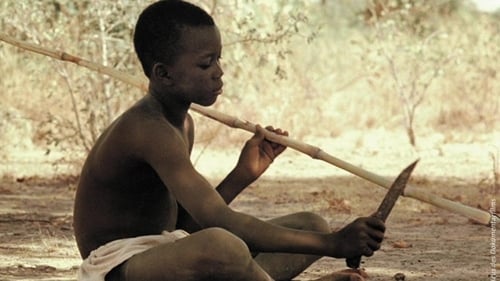
Nikiema is a farmer from Burkina who sees fate come down upon him. His fouryearold son dies from a simple case of measles. He sells off his cotton crop at a good price, but he still faces a lot of debts. His fifteenyear old son, who had been helping him with the farm work, flunks out of school and moves to Ouagadaougou, where he finds a job guarding people's bicycles. Nikiema tries to commit suicide because he cannot fulfill his promises to his creditors any more. He is saved at the last moment by the arrival of one of his many sons living in the Ivory Coast.

On their wedding night, a couple rescue a baby from a garbage bin only to adopt it some years later.

Tiraogo's wife
In the Mossi culture, one of the rites attending the birth of a child and its induction as a new member of the community involves the burial of the placenta. The space in which the placenta is buried is called 'Zan Boko' - a phrase which connotes the religious, cultural and affective relations that bind the child to the land and that embraces the notions of 'rootedness' and 'belonging'. Kaboré tells the story of Tinga, who resists the encroaching urbanization of his native territory. The specific rhythms and vision of the rural community, including its values, social relationship, and individual & collective destinies, are altered when a city is planted on the edge of an ancient native village.

Koudbila
Em tempos pré-coloniais, um vendedor ambulante, ao cruzar a savana, encontra uma criança inconsciente, deitada no meio do mato. O menino, quando volta a si, está mudo e não consegue explicar quem ele é. O vendedor o deixa com uma família na vila mais próxima. Depois de uma procura pelos seus pais, a família o adota, dando-lhe o nome Wend Kuuni (dom de Deus) e uma irmã amorosa, com quem ele cria laços. A fala de Wend Kuuni só volta quando ele é testemunha de um evento trágico que o leva a revelar sua própria história de dor.



